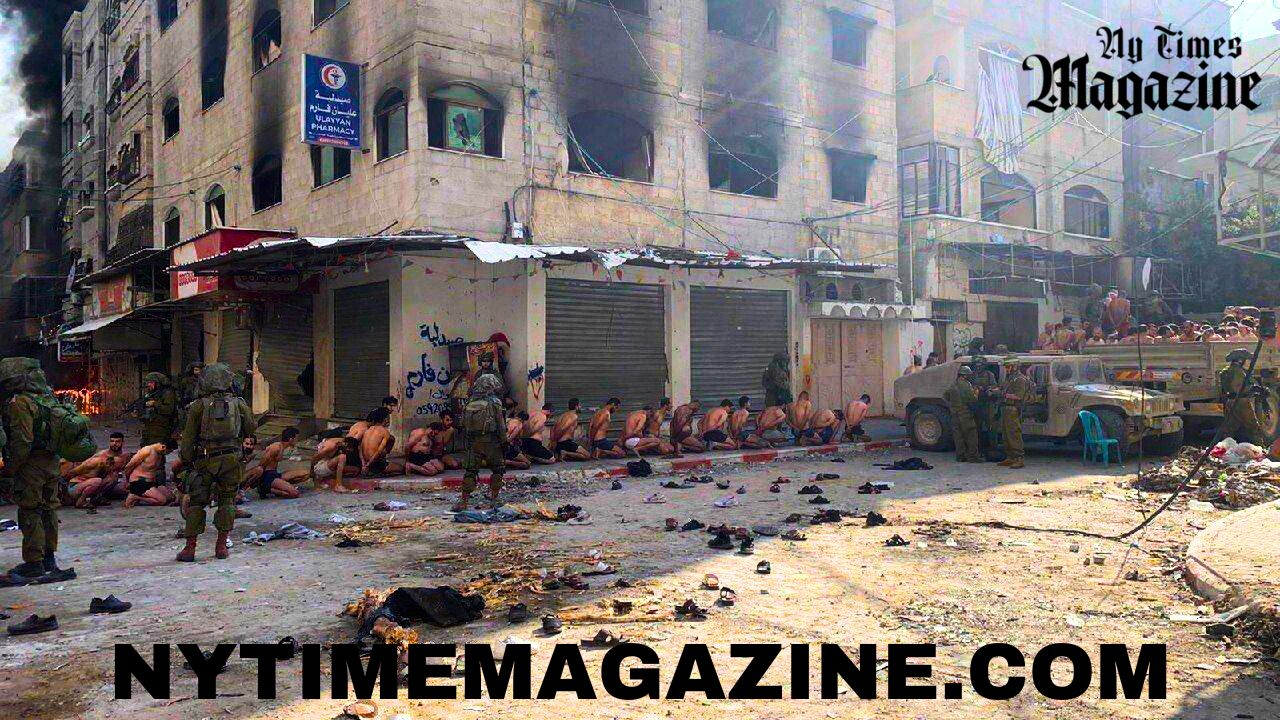The ongoing conflict in the Middle East, particularly in the Gaza Strip, has raised significant concerns about the treatment of detainees. Reports of individuals being stripped, beaten, or even vanishing have sparked international attention, with many questioning the ethical and human rights implications of such actions. In this article, we delve into the complexities of the situation, seeking to answer crucial questions and shed light on the broader context of the conflict.
Contents
- 1 Is Gaza Palestine or Israel?
- 2 Why did Israel occupy Palestine?
- 3 Where is Palestine?
- 4 Are there prisons in Israel?
- 5 The Disturbing Reality: Treatment of Gaza Detainees
- 6 International Response and Human Rights Concerns
- 7 Impact on Peace Efforts
- 8 The Importance of International Cooperation
- 9 Transparency and Accountability
- 10 Civil Society’s Role in Advocacy
- 11 A Comprehensive Approach to Peace
- 12 The Role of Media in Shaping Perceptions
- 13 Moving Forward: Hope for Resolution
- 14 Conclusion:
Is Gaza Palestine or Israel?
Understanding the geopolitical landscape is essential in addressing the situation in Gaza. The Gaza Strip is a part of the larger region known as Palestine. However, the political status of this territory is a contentious issue, with both Israelis and Palestinians laying claim to the land. The ongoing conflict stems from historical disputes and conflicting narratives, making it a deeply rooted and complex issue.
Why did Israel occupy Palestine?
The occupation of Palestine by Israel dates back to the mid-20th century. The establishment of the State of Israel in 1948 led to widespread displacement and conflict between Israelis and Palestinians. The ongoing struggle for control over territory, resources, and national identity has resulted in a series of wars and conflicts. The occupation of Palestine, including the Gaza Strip, is rooted in these historical tensions, with both sides holding firm to their claims.
Where is Palestine?
Palestine is located in the eastern part of the Mediterranean region. It shares borders with Israel to the west, Jordan to the east, and Egypt to the southwest. The geographical boundaries of Palestine are fluid and have been a subject of dispute, contributing to the longstanding conflict in the region. The Gaza Strip, situated along the Mediterranean coastline, is one of the key areas that have been a focal point of contention.
Are there prisons in Israel?
Yes, Israel has a system of prisons, including detention facilities for individuals involved in the ongoing conflict. The treatment of detainees in these facilities has come under scrutiny, especially in the context of the Gaza Strip. Reports of detainees being stripped, beaten, or disappearing have raised alarms among human rights organizations and the international community.
The Disturbing Reality: Treatment of Gaza Detainees
The treatment of detainees in the Gaza Strip has been a source of concern for many human rights advocates. Reports suggest that individuals in Israeli detention facilities in the region have faced harsh conditions, including instances of physical abuse and humiliation. The stripping, beating, and mysterious disappearances of detainees have led to widespread condemnation and calls for a thorough investigation into these allegations.
International Response and Human Rights Concerns
The international community has expressed deep concern over the reported mistreatment of Gaza detainees. Human rights organizations have called for transparency and accountability, urging authorities to uphold the rights of individuals in detention. The United Nations and various countries have called for an independent inquiry into the allegations, emphasizing the need for a just and fair resolution to the ongoing conflict.
Impact on Peace Efforts
The treatment of Gaza detainees not only raises ethical concerns but also has broader implications for the prospects of peace in the region. The ongoing conflict between Israel and Palestine has endured for decades, with numerous attempts at peace negotiations. The mistreatment of detainees further complicates these efforts, eroding trust and deepening animosities on both sides.
The Importance of International Cooperation
Addressing the complex issues surrounding the treatment of Gaza detainees requires a coordinated international effort. Countries, organizations, and individuals worldwide must engage in diplomatic initiatives aimed at promoting dialogue, understanding, and respect for human rights. The United Nations, as a global forum, plays a crucial role in facilitating discussions and encouraging peaceful resolutions.
Transparency and Accountability
One key aspect of resolving the concerns surrounding Gaza detainees is ensuring transparency and accountability. Independent investigations, monitored by international bodies, can provide a comprehensive understanding of the situation and help establish responsibility where necessary. This commitment to transparency is crucial for rebuilding trust and fostering an environment conducive to lasting peace.
Civil Society’s Role in Advocacy
Civil society, including non-governmental organizations and grassroots movements, plays a pivotal role in advocating for justice and human rights. These organizations often serve as a voice for the voiceless, shedding light on injustices and mobilizing public opinion. Raising awareness about the treatment of Gaza detainees is a critical step in galvanizing support for positive change.
A Comprehensive Approach to Peace
Addressing the treatment of Gaza detainees is just one facet of the broader Israel-Palestine conflict. A comprehensive approach to peace must encompass political, economic, and social dimensions. Negotiations should focus on creating conditions that foster mutual respect, understanding, and a shared vision for coexistence. The international community’s role in supporting these efforts cannot be overstated.
The Role of Media in Shaping Perceptions
Media coverage plays a crucial role in shaping public perceptions and influencing the narrative surrounding conflicts. Journalists have a responsibility to report objectively, providing a balanced view that considers the perspectives of all parties involved. Ethical journalism contributes to an informed public, fostering a nuanced understanding of complex issues.
Moving Forward: Hope for Resolution
While the challenges are significant, there is always hope for resolution and lasting peace. The global community must remain committed to supporting initiatives that promote dialogue, understanding, and reconciliation. Engaging with local communities, promoting education, and fostering cultural exchange can contribute to breaking down barriers and building bridges toward a more harmonious future.
Conclusion:
The treatment of Gaza detainees serves as a stark reminder of the urgent need for a comprehensive and just resolution to the Israel-Palestine conflict. The international community, governments, and individuals alike must unite in their commitment to human rights, peace, and justice. By addressing the root causes of the conflict, advocating for transparency, and fostering understanding, we can pave the way for a brighter and more peaceful future for the people of Israel and Palestine.
In the face of adversity, it is through empathy, cooperation, and a shared commitment to humanity that lasting solutions can be forged. The treatment of Gaza detainees should not only be a cause for alarm but a catalyst for positive change. As the world watches, it is our collective responsibility to ensure that the principles of justice and human rights prevail in the pursuit of a just and lasting peace in the region.



